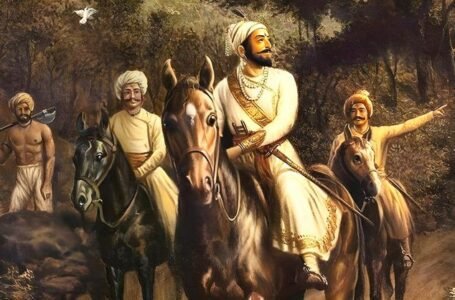Guru Nanak: The Visionary Founder of Sikhism
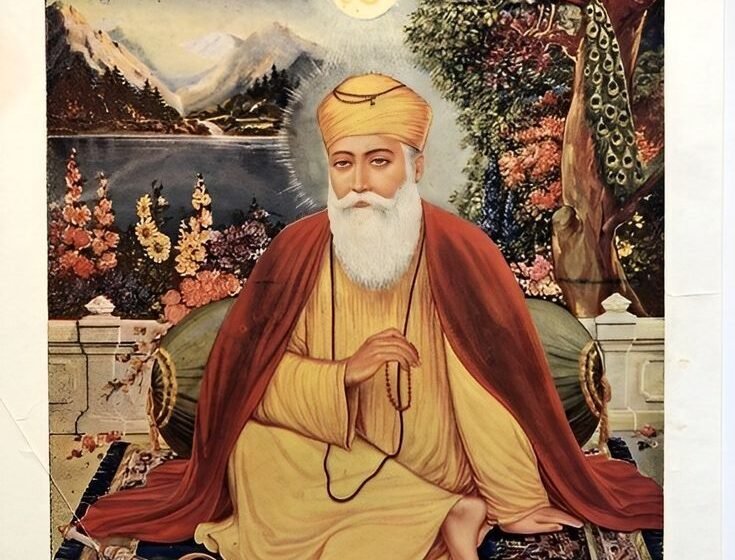
Guru Nanak, born on April 15, 1469, in the village of Rāi Bhoi Dī Talvaṇḍī (now Nankana Sahib, Punjab, Pakistan), is the revered first of the ten Sikh Gurus. His birth anniversary, celebrated as Guru Nanak Gurpurab, falls on Katak Pooranmashi (the full moon of Kathak, which corresponds to October–November). Nanak’s teachings transcend religious boundaries, the concept of Ik Onkar present in all creation.
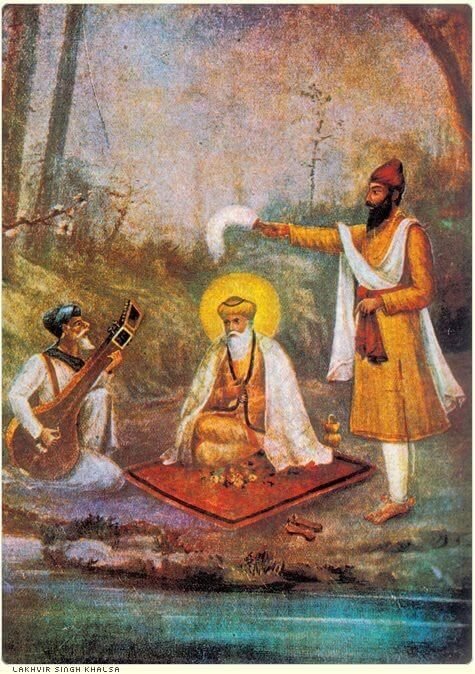
Nanak was born into a Khatri Punjabi clan. His upbringing was influenced by both Hindu and Muslim traditions. At the age of 30, he mysteriously disappeared for three days, emerging with a new spiritual vision. Nanak embarked on extensive journeys across Asia. His message is equality, love, goodness, and virtue. He composed 974 poetic hymns (Shabda) that form a significant part of the Guru Granth Sahib, the holy scripture of Sikhism. Nanak’s teachings harmonised Hindu and Islamic beliefs. He challenged rituals and dogma’s direct communion with the divine. His legacy resonates in the Adi Granth, the Sikh scriptures. Guru Nanak’s universal message laid the foundation for Sikhism’s core principles. Nanak fearlessly critiqued caste discrimination, superstitions, and materialism. His poetry encouraged introspection and social transformation. Nanak’s legacy exemplifies unity amidst diversity. His teachings bridge religious divides, emphasising shared humanity. Guru Nanak’s words continue to inspire generations. His vision transcends time, inviting seekers to explore the ineffable.
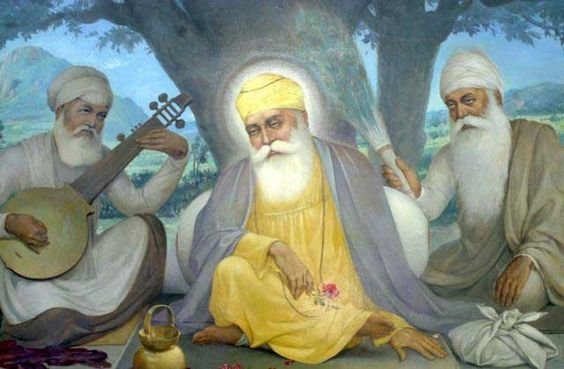
Guru Nanak left behind a treasury of 974 poetic hymns known as Shabda. These hymns, recorded in the holy scripture of Sikhism—the Guru Granth Sahib, resonate with spiritual seekers across generations. Here are some of his famous compositions:
The Japji Sahib is a profound prayer that begins the Guru Granth Sahib. It recitation (jap) and signifies respect (ji and sahib). Japji Sahib lays out the path of spiritual awakening, touching upon themes of creation, truth, and devotion. Composed in the form of a heroic ballad (Var), the Asa di Var is meant to be sung during the early hours of dawn. Set to the musical mode of the Raga Asa, it alternates between stanzas (Pauris) and staves (Slokas). Guru Nanak’s verses in the Asa-di-Var critique mindless rituals, the fear of God, and call for introspection. In this composition, Guru Nanak engages in a dialogue with the Siddhas—enlightened beings. The discussion covers topics such as the nature of reality, the pursuit of truth, and the limitations of human understanding. This hymn celebrates Guru Nanak’s holy birth. It proclaims that with his arrival, a great fog lifted, and the world bathed in divine light.
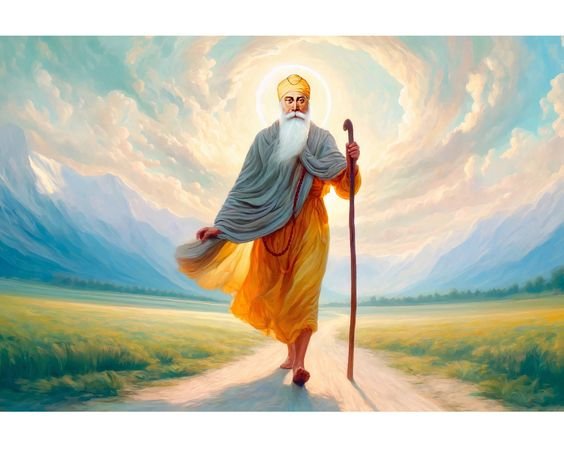
On his extensive journeys known as Udasis. These travels spanned approximately 24 years and took him across vast stretches of South Asia and the Middle East.
Let’s explore these transformative journeys:
Guru Nanak undertook a series of four extensive journeys, each marked by spiritual exploration and encounters with diverse communities. These Udasis were pivotal in shaping Sikhism and disseminating the profound teachings of Guru Nanak. Eastward Journey: Nanak travelled to Ceylon (Sri Lanka), where he engaged in spiritual dialogues and shared his message of unity and love. Southward Journey: He journeyed to various regions, including Mecca, the holy city of Islam. His presence challenged prevailing norms and the universality of divine truth. Other Destinations: Nanak’s travels extended to Baghdad, Kamroop (Assam), and Tashkand, among other places. During these journeys, Guru Nanak engaged with people from different faiths, engaging in dialogue and sharing his vision.
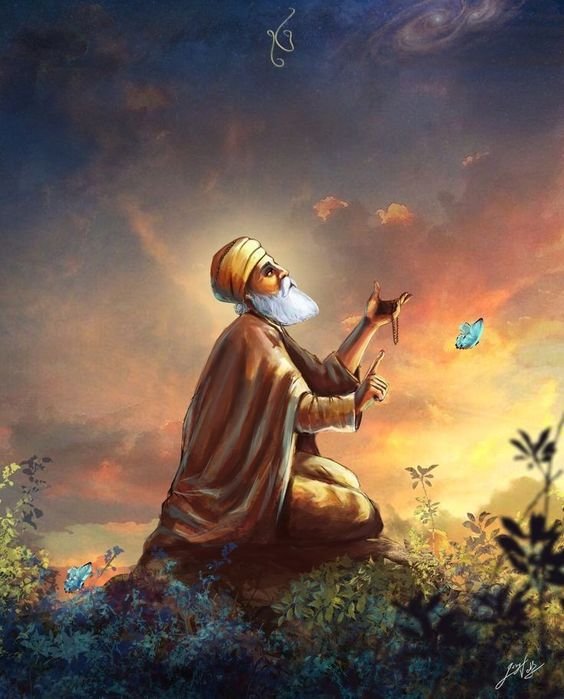
His teachings are all equality, love, and goodness, transcending religious boundaries. Guru Nanak’s travels were not mere physical journeys; they symbolised the quest for inner truth and the pursuit of divine wisdom. His legacy continues to inspire seekers, inviting them to explore the ineffable and embrace unity amidst diversity.
During a sacred thread ceremony at the local school, young Nanak surprised everyone. Instead of following the conventional ritual, he used the money his father had given him to buy food. Nanak then distributed this food among the less fortunate. This incident showcased Guru Nanak’s early rejection of ritualism in favour of compassionate action. It hinted at the egalitarian principles that would later define Sikhism. His innate understanding that spirituality should be expressed through acts of kindness transcended the boundaries of caste and creed. Even in his formative years, the seeds of Guru Nanak’s revolutionary ideas were evident. His commitment to selfless service and compassion laid the foundation for a profound spiritual journey.

Guru Nanak said that there is only one Universal Creator God. This divine presence exists in all creation, transcending religious boundaries. Sikhs refer to this eternal reality as Waheguru—the Wonderful Lord. Nanak rejected the need for intermediaries, rituals, or priests. He taught that every human being can connect directly with God through meditation, recitation, and remembrance. The path to spiritual awakening lies in focusing thoughts on praising and appreciating the Creator. Guru Nanak’s most radical social teachings denounced the caste system. He proclaimed that everyone is equal, regardless of caste, gender, or social status. His legacy advocates for a society based on justice, compassion, and humanitarianism. Nanak the importance of selfless service (seva). Daily earnings should be through honest means, and sharing with the needy is the highest form of worship. His teachings promote a harmonious coexistence among different communities. Guru Nanak’s hymns, filled with love and honesty, form part of the Guru Granth Sahib.
His songs reflect God’s presence and carry the essence of truth. Nanak’s way of life was like a path adorned with beautiful songs—songs that praised and glorified the Almighty Lord.

Caste System: Guru Nanak fearlessly critiqued the rigid caste system prevalent in Indian society. He proclaimed that everyone is equal, regardless of caste, gender, or social status. His teachings social justice and equality. Nanak’s message transcended religious boundaries. He advocated for communal harmony, emphasising shared humanity. His teachings bridged the gap between Hindus and Muslims. Guru Nanak championed the rights of women. He rejected oppressive norms and challenged the status quo. His legacy encouraged women’s empowerment and dignity. Nanak emphasised selfless service as a fundamental principle. He believed that serving others was the highest form of worship. His teachings inspired acts of kindness and compassion. Guru Nanak rejected intermediaries and rituals. He encouraged direct communion with God through meditation and remembrance. His legacy has inner transformation and spiritual inquiry.
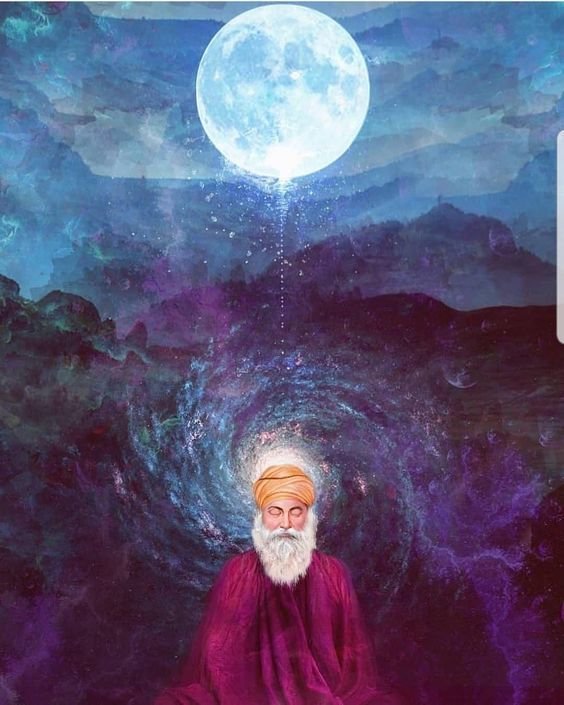
Guru Nanak Dev Ji left an indelible mark on humanity. His teachings continue to resonate across centuries, guiding us toward righteousness, love, and equality. His legacy emphasises compassion, selfless service, and unwavering devotion. Guru Nanak’s profound spiritual insights and tireless quest for truth inspire us to embrace goodness and virtue.
